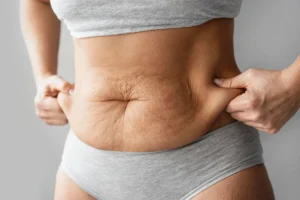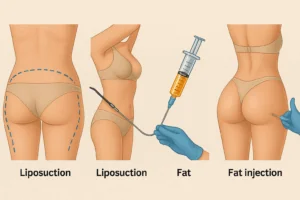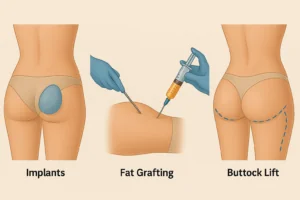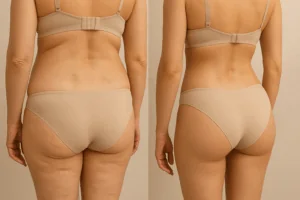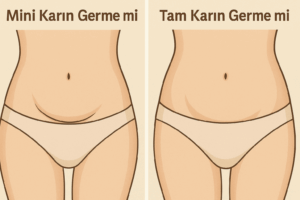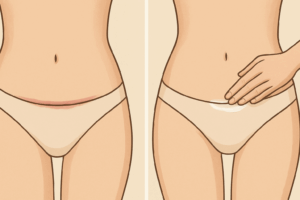Menopause is an important milestone in every woman's life. While this natural process causes various changes in the body, it can also bring some difficulties. However, with the right approach and healthy lifestyle choices, it is possible to make this period more comfortable and healthy. This guide provides comprehensive information and recommendations for healthy living during menopause.
What is Menopause?
Menopause is the end of a woman's reproductive period and the cessation of her menstrual cycle. It usually occurs between the ages of 45-55 and includes the following stages:
- Perimenopause Transition to menopause
- Menopause 12 months after last menstrual period
- Postmenopause Period after menopause
Menopause Symptoms
During menopause, women may experience various symptoms:
- Hot flashes and night sweats
- Vaginal dryness
- Sleep problems
- Mood changes
- Tendency to gain weight
- Skin and hair changes
- Decrease in bone density
- Libido changes
Recommendations for a Healthy Life
1. Nutrition
A healthy diet during menopause can help relieve symptoms and maintain overall health.
Recommendations:
- Eat foods rich in calcium and vitamin D (dairy products, dark green leafy vegetables, fish)
- Choose whole grain products
- Increase your protein intake (lean meat, fish, legumes)
- Consume omega-3 fatty acids (salmon, flaxseed)
- Add foods containing phytoestrogens (soy products, flaxseed, whole grains)
- Limit sugar and processed foods
- Reduce alcohol and caffeine consumption
2. Exercise
Regular physical activity helps relieve menopausal symptoms, maintain bone health and improve overall wellbeing.
Recommendations:
- Do moderate-intensity aerobic exercise (walking, swimming, cycling) for at least 150 minutes a week
- Strength training 2-3 times a week
- Add flexibility and balance exercises such as yoga or pilates
- Strengthen your pelvic floor muscles with Kegel exercises
3. Stress Management
Stress can exacerbate menopausal symptoms. It is important to learn effective stress management techniques.
Recommendations:
- Practice meditation or mindfulness
- Learn deep breathing exercises
- Regularly engage in hobbies or activities you enjoy
- Get enough sleep (7-9 hours)
- Seek professional support if necessary
4. Bone Health
The drop in estrogen levels after menopause can lead to decreased bone density. To protect your bone health:
- Take calcium and vitamin D supplements (on doctor's advice)
- Do regular weight exercises
- Quit if you smoke
- Avoid excessive alcohol consumption
5. Heart Health
The risk of heart disease increases after menopause. To protect your heart:
- Have your cholesterol and blood pressure checked regularly
- Maintain a healthy weight
- Do regular cardiovascular exercise
- Consume omega-3 fatty acids
- Stay away from cigarettes
6. Cilt Bakımı
A drop in estrogen levels can affect skin elasticity and moisture.
Recommendations:
- Use sunscreen
- Use moisturizing creams
- Drink plenty of water
- Eat foods rich in antioxidants
7. Mental Health
Menopause can cause mood changes. To protect your mental health:
- Exercise regularly
- Strengthen your social connections
- Take up new hobbies
- See a therapist if necessary
8. Sexual Health
Vaginal dryness and changes in libido may occur. To protect your sexual health:
- Use vaginal moisturizers
- Maintain vaginal health with regular sexual activity
- Communicate openly with your partner
- See a sexual therapist if necessary
Hormone Replacement Therapy (HRT)
Hormone replacement therapy can be effective in relieving menopausal symptoms for some women. However, HRT has risks and benefits. Always talk to your doctor before starting this treatment.
Alternative and Complementary Therapies
Some women turn to alternative and complementary therapies to manage menopausal symptoms. These include:
- Acupuncture
- Herbal supplements (e.g. black cohosh, ginseng)
- Aromatherapy
- Massage therapies
Always consult a health care professional before trying these treatments, as some herbal supplements may interact with medicines.
Regular Health Checks
Regular health check-ups are very important during menopause. Have the following check-ups regularly:
- Mammography
- Pap smear test
- Bone density measurement
- Cholesterol and blood sugar tests
- Thyroid function tests
Conclusion
Menopause is an important transition period in every woman's life. The changes and challenges experienced during this period can be more easily managed with the right approaches and healthy lifestyle choices. A healthy diet, regular exercise, stress management and regular health check-ups will help you to make menopause more comfortable and protect your long-term health.
Remember, every woman's experience of menopause is different. Be patient with yourself and collaborate with health professionals to find the best approach for your needs. Menopause is the beginning of a new phase of life and it is entirely possible to live through it in a healthy and happy way.








